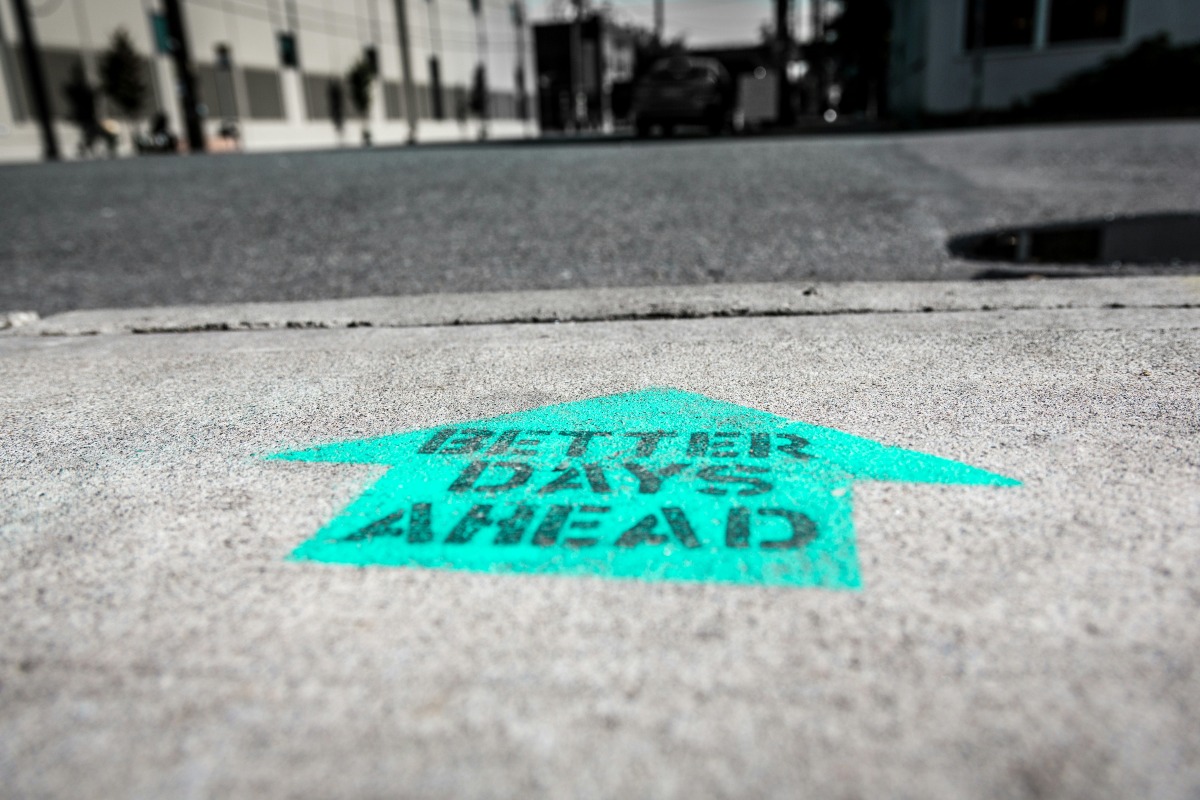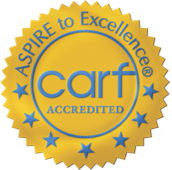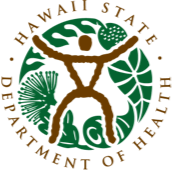Understanding Opioid Withdrawal
What Is Opioid Withdrawal?
Opioid withdrawal occurs when your body reacts to stopping or reducing opioid use.
Those using opioids regularly, whether they are receiving prescription opioids like Oxycodone under the direction of a medical professional or using illicit opioids like fentanyl, can experience withdrawal effects when suddenly stopping their use.
Over time, the brain adapts to regular opioid use, affecting neurotransmitters and the natural production of certain chemicals in the brain. Suddenly stopping can lead to any number of challenging symptoms as the body readjusts to their absence.
Opiate withdrawal is challenging to address. Those living with opioid use disorder (OUD) can benefit from the support of health care professionals in a dedicated detox program to not only address the use of opioids in their lives but also transition to further levels of care in overcoming opioid addiction, ensuring a successful detox while overcoming the effects of withdrawal.
Who Is at Risk for Opioid Withdrawal?
Anyone who uses opioids regularly, including veterans, can experience withdrawal.
Opioid withdrawal impacts anyone engaging in opioid substance use, whether illicitly or even while following the directions of a medical professional using a prescription drug. As opioid use becomes a regular part of a person’s lifestyle, opioid withdrawal syndrome can occur when use is suddenly ceased.
However, those who experience chronic pain, such as first responders or veterans coping with lasting injuries from their time in service, can be at an increased risk of being exposed to opioids, and thus are at an increased chance of addiction or withdrawal.
Talking to one of our clinicians or a health care provider about substance abuse or prescription drug use can help you or your loved one understand the risk of opioid withdrawal in your journey to overcoming substance use disorder.
Why Is Early Recognition Important?
Identifying withdrawal symptoms early can prevent complications.
Early intervention for opioid or any other form of drug abuse can be essential. Addiction is a disease that will not simply go away on its own, and even those with a legitimate prescription can still develop addiction and experience its negative effects.
Effective early intervention can help identify self-destructive behaviors, address mental and physical symptoms of drug abuse, and even prevent disastrous outcomes like overdose before they happen.
Early recognition can be especially important for those receiving prescription opioids like hydromorphone, hydrocodone, oxycodone, and more, to adjust prescriptions while getting more public health information about drug addiction and treatment options.
Common Symptoms of Opioid Withdrawal
What Are Physical Symptoms of Opioid Withdrawal?
Tremors, runny nose, sweating, nausea, and muscle aches are common physical signs of opioid withdrawal.
Some other potential symptoms include:
- Elevated heart rate
- Increased blood pressure
- Shaking
- Chills
- Hypersensitivity
These physical symptoms of opioid withdrawal are uncomfortable, making this time difficult. Even those who want to pursue a sober life can relapse during this time without the right support and care. There is no replacement for dedicated professionals in overcoming withdrawal. Fortunately, treatment programs like ours at Hawaii Island Recovery or your local treatment facility’s detoxification programs provide individualized treatment options and support as you take your first important step in healing.
What Are Psychological Symptoms?
Cravings, anxiety, insomnia, and mood swings often accompany withdrawal.
Other psychological withdrawal symptoms can also include:
- Panic
- Irritability
- Nightmares
- Depression
However, each person will always experience their own unique symptoms and challenges throughout withdrawal. While a person may not necessarily experience all of these symptoms, other challenges may occur depending on individual needs, underlying health concerns, or if a person is engaging in polysubstance use, or the use of multiple substances in tandem, such as opioids and alcohol.
How Long Do Symptoms Typically Last?
Withdrawal duration varies, usually 7–10 days for short-acting opioids.
However, while the most intense symptoms will subside after this time, it does not mean that a person’s journey with opioid addiction and withdrawal is over. Rather, lasting symptoms, as well as ongoing cravings, are normal. Transitioning to further levels of care to continue addressing personal needs, urges, and cravings is necessary for lasting change.
Medical Treatments and Pharmacotherapy Options
How Does Methadone Help With Withdrawal?
Methadone reduces withdrawal symptoms and cravings in opioid dependence.
It is a long-acting opioid agonist, providing a full and sustained stimulation of the brain’s opioid receptors. However, this long-acting effect is more controlled, helping to provide a consistent stimulation while managing effects, decreasing the intensity of withdrawal symptoms and urges.
This option still requires close monitoring. Discussing this option with a trained professional before beginning is crucial in a person’s journey. Likewise, it should be administered only by a trained and certified professional at a dedicated treatment facility or methadone clinic.
What Is Buprenorphine and How Is It Used?
Buprenorphine helps manage opioid withdrawal and supports recovery.
It is a partial opioid agonist, meaning that it only partially stimulates the brain’s opioid receptors, helping to alleviate some withdrawal symptoms in opioid addiction treatment, and allows the brain to return to a healthy brain chemistry without the intense highs of other opioids. However, prescribing buprenorphine should still be done by a medical professional, and use should be monitored to ensure the intended and supportive effects.
What Role Does Naltrexone Play?
Naltrexone blocks opioid receptors to prevent relapse after detox.
By blocking these opioid receptors, a person can prevent the effects of other opioids, helping each person focus on sobriety and abstinence from opioids while developing a healthy daily life. However, while it is most effective in facilitating long-term sobriety and abstinence, it is best used for those who have already navigated the challenges of withdrawal and completed at least a dedicated detox program.
Are Clonidine or Other Medications Helpful?
Clonidine can ease some physical withdrawal symptoms like tremors and high blood pressure.
The medications best used in overcoming OUD and opioid withdrawal can vary from person to person. Discussing personal needs, challenges, and goals with a trained professional can help each individual find the optimal combination of medications and therapy that best supports their healing journey.
Safe Withdrawal Strategies
What Are the Inpatient vs Outpatient Options?
Withdrawal can be managed in a medically supervised inpatient or outpatient setting.
Hawaii Island Recovery’s inpatient program provides around-the-clock support, allowing for the prompt addressing of withdrawal and other personal challenges. These plans can also be adjusted to meet your specific needs, goals, and hurdles during treatment.
Overcoming withdrawal in an outpatient setting is possible, but can be riskier. It requires a large amount of personal dedication and a robust and engaged at-home support system to ensure that a person does not relapse during this time, as well as tend to personal and medical needs that may arise. There is no replacement for a professional detox program, especially when it comes to intense opioid withdrawal.
How Do Tapering Protocols Work?
Gradually reducing opioid doses can make withdrawal safer and more tolerable.
Deciding to taper off drug use can ease some symptoms, and it is most often used in overcoming opioid addiction or an addiction to benzodiazepines. However, it is still an individualized program, and should be done with the support and guidance of a trained professional.
Likewise, tapering off opioids is just part of a comprehensive treatment plan, and should be done while also exploring personalized therapies, medication-assisted treatment (MAT), and engaging in individual and group therapy and support for the most effective approach to change.
How Can Evidence-Based Treatment Support Recovery?
Combining pharmacologic options with therapy improves long-term outcomes.
Hawaii Island Recovery offers a wealth of evidence-based treatment options for a comprehensive approach to recovery. By combining pharmacological options with cognitive-behavioral therapy (CBT), dialectical behavior therapy (DBT), motivational interviewing, acceptance and commitment therapy (ACT), and other evidence-based approaches to facilitate change, each person can engage in a truly transformative journey in recovery.
Healing from opioid addiction is about much more than stopping the use of the drug. Rather, it also addresses the lifestyles, ideas, mental health needs, and challenges that led to such a lifestyle to engage in holistic and lasting change.
Risks and Complications of Opioid Withdrawal
When Can Withdrawal Become Life-Threatening?
Severe dehydration, heart issues, or concurrent medical conditions can make withdrawal dangerous.
Working with trained professionals in a dedicated detox program can help monitor symptoms, needs, and challenges and react to any situations that come up. There is no replacement for the professional care of trained clinicians, with their support being instrumental in both navigating withdrawal safely and transitioning to further levels of care.
What Is the Risk of Opioid Overdose During Withdrawal?
Relapsing after withdrawal increases the risk of overdose due to lower tolerance.
Those who stop the use of drugs can have their tolerance for the drug decreased. However, when reengaging with opioids due to a relapse, it is common to use them again at the same level as just before a person stopped, increasing the risk of opioid overdose and a myriad of other challenges.
Even if you or a loved one is dedicated to healing, having a plan and being prepared for relapse is necessary. Relapse prevention plans can help prevent opioid overdose during this time as a result.
Likewise, having naloxone on hand, also known as Narcan, can be a life-saving measure. It is a fast-acting medication that can reverse the effects of an opioid overdose, providing emergency support while contacting emergency services and creating a new plan for opioid addiction treatment.
How Does Mental Health Affect Withdrawal?
Anxiety, depression, and PTSD can intensify withdrawal symptoms, especially in veterans.
Having access to holistic support during opioid withdrawal is paramount. For many veterans, prescription opioids may have been originally used to manage pain stemming from their time on active duty, or chronic injuries that still remind a person of past life-threatening experiences.
Managing mental health needs, from anxiety and depression to post-traumatic stress disorder in veterans, can be essential to not just navigating difficult withdrawal symptoms but also addressing other needs common during such an intense time of change.
Supporting Veterans During Opioid Withdrawal
How Can Family and Community Support Help?
Veterans benefit from strong support networks during withdrawal and recovery. Some important ways that families can support veterans during opioid withdrawal and recovery include:
- Educating oneself about addiction as a disease, trauma, and PTSD
- Stay active and engaged in a loved one’s treatment and healing
- Avoid enabling behaviors, even ones born from a genuine desire to help
- Explore triggers and stresses in a loved one
- Be patient and open to change
- Offer support in transportation or accessibility to treatment
- Learn to listen and create a home atmosphere that encourages vulnerability and trust
- Engage in your own healing and model effective and healthy self-care practices
What Role Do Meditation and Holistic Therapy Play?
Mindfulness, yoga, acupuncture, and other holistic therapies can reduce stress and ease withdrawal symptoms in detox and throughout long-term recovery.
Combining these holistic options with evidence-based therapy and medication when necessary can create a comprehensive approach to sustainable change. Addressing physical, mental, emotional, and even spiritual needs can be paramount in maintaining motivation to overcome addiction, easing withdrawal symptoms, and facilitating transitioning to the next level of care.
These holistic options also empower those overcoming addiction to explore new lifestyles, perspectives, ideas, and spiritual beliefs, celebrating healing not just from addiction, but from self-destructive lifestyles or challenges that may impede personal goals and a healthy way of life.
Can Veterans Reintegrate After Detox?
Of course! However, structured continuing care and outpatient programs aid safe reintegration.
Finding dedicated local veteran support groups, getting engaged in healing communities, and continuing outpatient care to develop essential life skills can all help to reintegrate after detox and even while still healing from trauma and PTSD.
FAQs About Opioid Withdrawal
Can You Prevent Withdrawal Symptoms?
Using MAT or tapering under medical supervision can minimize symptoms.
However, expecting recovery to be completely free of withdrawal symptoms can be a high expectation. Rather, while medication can help lessen the severity and intensity of specific symptoms and challenges, it will still take hard work and dedication to overcome addiction and withdrawal.
Working to minimize symptoms while developing new skills, perspectives, and more can be the best approach to transformative healing in professional treatment.
How Long After Last Use Will Withdrawal Begin?
Symptoms typically appear within hours for short-acting opioids and within 24–72 hours for long-acting opioids.
However, while these symptoms can be intense, they will lessen over time, leading to new opportunities in daily life. Each person will also have their own timeline and progress, and a person’s experiences overcoming opioid use will vary.
Likewise, even after navigating the challenges of withdrawal during this period, a person’s journey to overcome opioid use disorder is not over. Rather, there can still be urges, cravings, and triggers that can affect sobriety. Continuing to engage in effective treatment programs, such as residential care, intensive outpatient treatment, and an aftercare support program, is part of the ongoing healing journey.
Is It Safe to Detox at Home?
Detox at home can be dangerous; professional supervision is strongly recommended.
There can be any number of unexpected challenges and health risks during detox. These symptoms can be intense, and having access to professional support, care, and resources can be instrumental in navigating this time safely.
There is nothing easy about overcoming opioid addiction, and attempting to detox at home can lead to unnecessary risks, including setbacks like relapse early on in healing. Professional detox facilities can not just provide educated support and medical supervision during this important time, but also help you integrate into a larger healing community to maintain sober change and abstinence from drug use.
What Happens After Opioid Withdrawal?
Withdrawal is a difficult step in recovery, and after navigating its effects with a professional, you will explore further care in residential or outpatient care.
While overcoming the effects of opioid withdrawal is challenging, it does not mark the end of your recovery journey. Transitioning to further care in residential treatment at Hawaii Island Recovery or a local outpatient treatment facility, depending on your needs and goals, is the next step to maintaining sobriety and establishing a fulfilling and healthy drug-free life.
Can I Get Help Today?
Of course! It is never “too late” or “too early” to learn more about opioid addiction recovery programs.
Calling our staff at Hawaii Island Recovery or a local treatment facility about your needs and goals is the first important step toward change. Learning about addiction, your options, and even just finding a community is crucial to beginning your journey, and nobody is ever “too addicted” that they cannot commit to a successful sober life.
Opioid withdrawal presents several unique challenges, from navigating difficult symptoms to exploring healing from drug use, mental health disorders, and much more. Professional support at Hawaii Island Recovery can help you take this first step with confidence and support. Call today to talk to a caring professional about your journey with opioids and how to begin your healing journey at (866) 390-5070.












